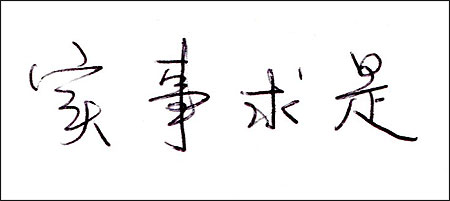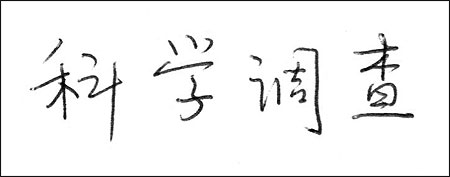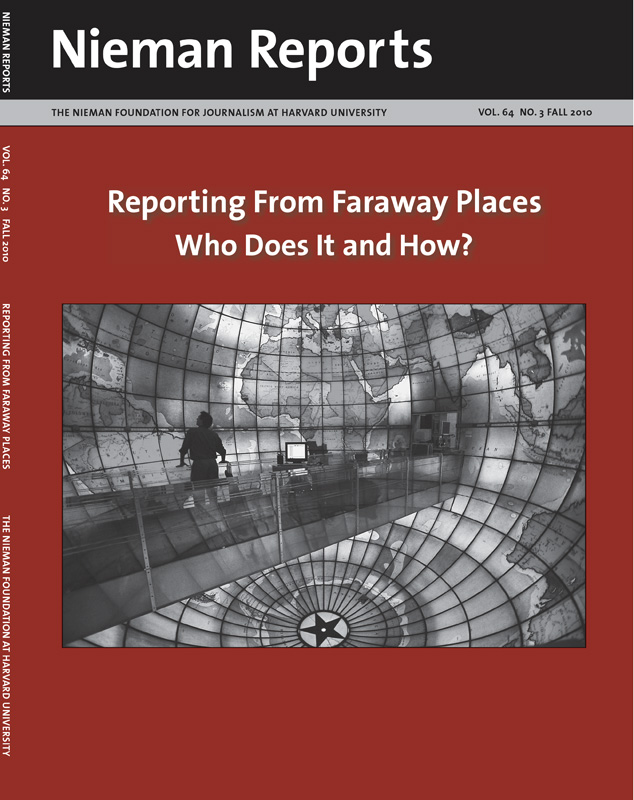
China is a land of stupefying contradictions. One of the best metaphors I know describes it as a Mandarin duck, appearing to float calmly on the surface of the water while its feet are moving as fast as they can underneath. It is a place without the rule of law, where placing limits on free expression becomes the highest form of democracy—the greatest harmony for the greater good—and where authoritarian capitalism is axiomatic, not oxymoronic, and terms like innovation and entrepreneurial are redefined within a system of Confucian hierarchy and state control.
Human rights, democracy and journalism are three of the most transitive terms in the English language when it comes to our thinking about China; we think we understand them until we see that the Communist Party enshrined all of these in its Constitution.
The most voracious consumer of news media in China has always been the state itself, which needs reliable information in order to legislate. Given the Communist Party’s heavy investment in global enterprises, the value of independently verifiable financial news is just as prized in China as it is by investors anywhere else to assess risk and for markets to function properly. And so the party has expanded the teaching of journalism at Chinese universities (the country now has some 800 journalism-oriented programs) to produce financial journalists capable of more transparent reporting than their predecessors.
As an American lecturing in journalism at one of China’s top universities for leadership candidates in the Communist Party, a political apparatus known for its suppression of information and dissenting opinions, my experiences with students there taught me much about the role journalism and journalists are expected to play.
Foreign Students of Journalism in China
Business journalism wears a cloak of protection in China; it is a somewhat safer moniker on campuses than journalism unmodified. My graduate students at Tsinghua University were recruited from the Global Business Journalism (GBJ) program that had been established the year before with funding from the John S. and James L. Knight Foundation in conjunction with the International Center for Journalists. As a Fulbright lecturer, independent of the department as a whole, I taught two graduate seminars of rather dubious value to the occupational mandates of the Communist Party committees at the university: opinion and commentary, and narrative journalism. During our time together, my students would come to see how writers such as Michael Lewis, Joan Didion, or, reaching further back, James Agee, could take their financial reporting a step beyond the Bloomberg handbook to a level never contemplated by the ministry of information.
The students I taught came from a diverse group of countries—Australia to Zambia. About half of the nearly 50 students in the program were Chinese nationals, all but four of them female. Just over half of the international students were men; a few had prior experience as journalists, and at least two were working journalists reporting from China.
Foreigners in Beijing would often ask me a variation on the question “What on earth are international students doing studying journalism in China?” It was a question I arrived with and one I hoped my experiences would help me answer. Over the course of the year, I asked my students: “Tell me why are you studying journalism in China?” As the year wore on I gave up on the idea that there was a single satisfactory answer. Instead, I felt that all we could do was to keep asking ourselves this question, as I would do often since as a Fulbright scholar I was studying the Chinese way of journalism as much as anyone. And when I was with my Chinese students, I was constantly aware that the journalism they could practice was antithetical to the principles I was teaching, or so I believed until I learned to trust the scientific nature of these principles.
It turns out that China is a fascinating place to study journalism as a foreigner, if what you are studying is China and the rapid evolution of Chinese media. And few views are more intimate—and revealing—than the one I had inside Beijing’s Tsinghua University with a rare classroom of Chinese and foreign students in a department that was receiving both state and international funding.

It would be easy to take a jaundiced view of Tsinghua’s GBJ program and say that to recruit an international student body and faculty served to validate a form of “journalism with Chinese characteristics” found elsewhere in the School of Journalism and Communication. In Mandarin-only departments like Marxist Journalism, journalism is seen as a profession to serve the goals of orthodoxy. On the other hand, funding from the Knight Foundation, Bloomberg terminals, and an international roster of guests from Tony Blair to Joseph Stiglitz made it possible for the Chinese students to have an unprecedented international experience, grounded by faculty and peers who brought different criteria to bear.
Chinese Journalism Students
Highly rewarding as this international group was, I wanted more Chinese nationals in my classroom. On leave from Hearst for a year, I hadn’t come to Beijing to do what I might have done as an adjunct at a university in New York. In my travel to other parts of China on the Fulbright, I’d spoken to large halls of Chinese students from all disciplines. Seeing a chance to design a journalism course for non-majors open to Tsinghua undergraduates, I brought my proposal to the dean to design a course we called “Media Culture.” My course description cast a wide net: “… designed for non-journalism majors, we will apply solid journalistic principles to any field of endeavor. …”
Among the features of this highly popular course—to attract stressed-out engineering, science and economics students—was the extracurricular screening of such journalism-themed films as “Ace in the Hole,” “Shattered Glass,” and “All the President’s Men.” As part of one assignment, a student from the School of Economics and Management wrote:
Had I not taken this course, I would have been more sympathetic [to] the two reporters [Woodward and Bernstein] who were pushed to squeeze out another source of confirmation on the national [Watergate] conspiracy. But after “Shattered Glass,” I have started to understand the importance of fact checking and the crucial role that an editor plays.
Ben Bradlee, pro vobis. Is there anything sweeter than this to an editor’s ears? A finance student, also commenting on “All the President’s Men,” wrote:
Before seeing it, I did not know that two ordinary reporters played such an important role in the whole incident. Unfortunately we rarely see similar responsive and motivated journalists in our country, and it is almost impossible to learn any “insights” from our media. Even if there was someone who encountered intolerable injustice, his or her voice was always dampened. Few would tell an “unauthorized” story.
In most ways the classrooms at Tsinghua were similar to those on American campuses, though not so well carpeted or loaded with the latest Apple technology. But they were a protected space where any topic is open (behind closed doors), including, I was told by Executive Dean Li Xiguang, the “Three T’s”—Tibet, Tiananmen, and Taiwan. Nothing, he told me, would be off-limits to student reporting, though he encouraged me to be more discrete in official public gatherings of faculty and students.
But the situation in my classroom is far from what these students would face as working journalists at state-run news organizations. It should be noted here that only a few of the GBJ graduate students will become financial reporters. Most of the Chinese nationals hoped to find a stable government job or go into communications and public relations for private enterprises. Given this, many times I wondered whether these students were all that different from journalism students at American colleges facing the cubicles in corporate media. Among my Chinese graduate students in one class, eight of the 13 went to work for state media; two work in the internal reporting department at Xinhua News Agency where their reporting is read only by party officials, one is with a weekly magazine published by Xinhua, and five were hired by China Daily.
For More on The Elements of Journalism, see the Summer 2001 issue of Nieman Reports »For my undergraduates, who were mostly engineers, “The Elements of Journalism,” by Bill Kovach and Tom Rosenstiel became the core text. I taught these principles as I would anywhere else, but that does not mean my students would be able to practice their craft using the same standards, if they decide on careers in journalism. They will be licensed by the government and have to sit regularly for recertification to ensure they are up on the latest policy decrees from the Communist Party. They might call these core competencies; we would call them something else. And they are entering a field that will not have the capacity to absorb them if they expect to practice the ideals of the profession as they studied it. Add to this the fact that the prospects for a young Chinese reporter are low—compensation and legal protections are inadequate, and none of the requisite professional organizations are in place to assist them.
Contradictions to Nationalism
Given the current situation, why are so many Chinese j-schools bulging with applicants? As young reporters they will join a force of more than 700,000 Chinese journalists and media workers who face off with editors who will censor their stories in accordance with China’s laws and regulations. And they will be asked to self-censor. Yet under this metaphysical ceiling of orthodoxy, stories abound, reporting sometimes gets through, consumer fraud and official corruption are exposed. A fortunate few will even work at places like the former Caijing magazine with an editor like Hu Shuli before she resigned in protest and became a founder and editor in chief of Caixin Media, or Southern Metropolis Daily, as it had been under the visionary editorship of Cheng Yizhong before he was removed. Increasingly, some will count on being dispatched overseas after dues paying at Xinhua headquarters, assigned to one of its international units as part of the push for a Chinese CNN to grow its influence over news and information. Or they might find work as news assistants at the foreign bureaus of international news organizations—though the chance that this will be an American publication is less likely as bureaus close.
When censorship of China’s media is decried from abroad, it often sounds shrill inside China. For one, it does not take into consideration how the majority of urban Chinese (those in the Eastern cities) feel—that new media technologies and the ability to tunnel under the Great Firewall have given them access to more world news, Internet forums, and social media tools to speak more freely and more anonymously than they ever did through traditional media. That anonymity may be cold comfort from here in the U.S., where Chinese censorship has another face; here it is regarded as not just a challenge to the liberal-democratic ethos but as a trade barrier. Censorship is keenly felt as media protectionism favoring Chinese clones like Baidu over American entities like Google.
There is a new self-confidence in China brought on by weathering the current financial crisis. Its students are more assertive and less impressed by liberal democratic ideals as models for the developing world. My elite students were the embodiment of this new pride, but I could not help noticing ironies in the aggrieved sense of nationalism promoted by the Communist Party.
For me, there was a weird sense of satisfaction in the prurient thrill my students took in pointing out the supposed licentiousness of American society they got from headline news. They kept me abreast of American TV shows I had not seen, downloading them from the Internet, and eagerly told me about shootings I would have missed in the news cycle (viewing them as proof of the dangers of American life). My students still admired American innovation, technology and higher education, and that democracy can even work amid the bedlam of American power and politics.
But there were many signs throughout my year at Tsinghua that a desire for freedom and reform transcends the currents of nationalism. Ideally, I told students in my opening lecture, journalists are something akin to scientists of facts, relying on methods that make it possible to practice newsgathering as an objective discipline within the subjective prejudices of the writer.
In the Chinese system, foreign journalists are thought to be biased because we do not confirm our facts with the government, which has processed all the sanctioned particulars into a single version of the truth; instead, our arbitrator is our editor. The Chinese way is imperial in origin. Chinese state journalists are asked to report the truth as it was reported to them, or so it sometimes appears. The ministry of information dictates what topics are sacrosanct and out of bounds to reporters; yet these rules remain mostly unwritten, so each editor has to determine the Maginot Line based on home contingencies and the politics of the local prefecture.
At Tsinghua University, I was teaching journalism scientifically, as a craft with a set of practices for newsgathering and objectivity built into the working model. By approaching journalism in this way, my undergraduate engineers and science majors easily made the connection. After all, they were inculcated in the scientific method of testing evidence and allowing a scientist to bring observation and experience to bear, which is necessarily a subjective stance while still being able to report their findings objectively.
One student sent me this e-mail after that opening lecture:
I really appreciate the first lecture on Monday, and was especially impressed by “Journalists are scientists of facts.” It astonished me that you didn’t say experts instead. Experts could be hired by a company or a country, but the soul and the original thoughts of a real scientist definitely couldn’t be bought by anyone.
Pragmatism is what Deng Xiaoping deeply believed in economy, but also in publicity (some teachers may prefer the word “propaganda”). In different times, the media or basically the press could be “used” in different ways. The tradition lasts long in this old nation that media is always regarded as the mouthpiece of the authority. But I think the willing[ness] of the whole society to seek truth and facts is stronger than any time before. Although there are still many dark sides in journalism or op-ed in China, it’s been a good sign that this kind of willing[ness] and hope continues. That’s why agreement echoed in my mind.
American scholars come from a pluralistic environment where First Amendment rights are the bedrock on which the media should function. But in China, the press situation is entirely different. There is nothing like having students to make a person reexamine their own ideas. This is particularly true with foreign students, who reveal the fault line in assumptions of shared values. Some Chinese scholars may privately accuse Western journalists teaching at Chinese journalism schools of conspiring with the Communist Party by teaching future Chinese journalists the best practices of the West without fundamentally changing the monolithic nature of state media. But through interactions like the e-mail exchange above, I came to understand that my teaching would result not in the wholesale adoption of American journalistic standards, impossible under Chinese orthodoxy, but rather in my students borrowing and using what could work for them.
By imitation and participation China’s state media are pretending to the world to practice “journalism with Chinese characteristics.” The question becomes whether by pretending to practice journalism is it inevitable that enough Chinese reporters will eventually practice solid principles—and have the support of good editors who are equal to them. Whether by imitation and participation, they will necessarily come to a point where the choice is to uphold the principles of the profession or deny their own credibility.
RELATED ARTICLE
“Looking at Western and Eastern Ideas About Journalism”
- Glenn MottTo be a student journalist in China is to be sufficiently pragmatic, cooperative and comprehensive. To teach journalism in China is to be agnostic about the application of scientific principles of journalism, to trust the critical skills of the craft. If one of my students who is a member of the Communist Party should use her journalistic faculties in the service of her country, at least we will have a higher level of discourse with which to engage each other in the future, and this will necessitate that we, too, hold our professional practices to the standards we profess for American journalism.
Glenn Mott, who is the managing editor and director of publishing at King Features Syndicate, a unit of Hearst Corporation, taught journalism at Tsinghua University as a Fulbright scholar.



